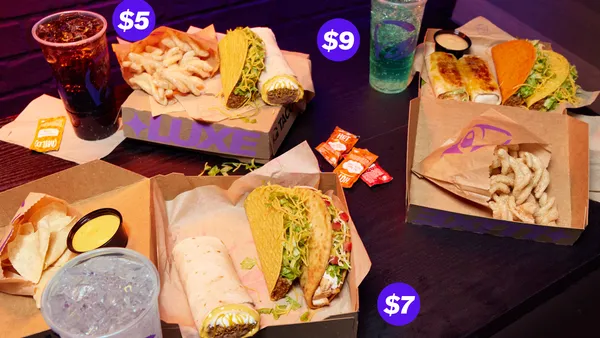Seth Steinman is the SEO manager at Upserve
It's no secret that Americans are living in a divisive political climate. A poll from NBC News and the Wall Street Journal found that about 80% of survey respondents (hailing from a wide variety of backgrounds and political leanings) said the U.S. is either mainly or totally divided.
Experts cite a range of causes for this division, from the polarizing effect of social media to news outlets that reinforce the beliefs of their viewers. No matter the cause, politics has crept into many facets of our everyday lives, from our morning coffee to the evening football game and now the food industry.
As climate change continues to be a heated topic of discussion in the political realm, there are rising concerns surrounding how farming practices affect the environment. Factory farming, for example, is responsible for 37% of the world's methane emissions; and the fossil fuels expended in the production and transportation of crops emit about 90 million tons of carbon dioxide each year.
Restaurant owners and food industry executives sometimes feel pulled between environmental responsibility and running a profitable business. In some cases, the least expensive options have the biggest environmental impacts.
Of course, farming will always have an environmental impact — but that doesn't mean those in the food industry cannot be environmentally responsible while still improving their bottom lines.
Easing the environmental burden
Although some causes seem partisan, there are numerous ways restaurant executives can demonstrate political responsibility while running a profitable business.
Inventory management is a great example: Ordering the right amount of food is a big win for both the environment and businesses. Restaurants currently contribute about 11.4 million of the 63 million tons of food wasted each year in the U.S., and nonprofit ReFED reports that each dollar invested in reducing food waste can produce an $8 savings.
To reduce food waste, restaurants should consider automated inventory. These systems automatically track how much food you use and reorder ingredients accordingly to ensure the correct amount of food is ordered and avoid wasting leftovers.
Foodservice establishments aren't the only contributors to pollution, though. The U.S. Market Access Program provides financial incentives to huge monocultural operations that produce a single crop, making it possible to ship mass-produced foods from one side of the world to another and still compete with local farms. According to some scientists, these practices are a big reason global food production accounts for one-third of total greenhouse gas emissions.
This is why it's more important than ever to buy locally whenever possible. Local produce also provides unexpected benefits in terms of appearance.
Diners judge food based on how it looks before they can judge how it tastes, and it's hard to prevent produce from showing the signs of a long journey when it travels an average of 1,500 miles from farm to table. And when food looks better, customers are more likely to return to your restaurant again and again.
In addition to looking better, local produce requires less bioengineering to maintain its freshness. Add in the fact that the pollutants associated with transportation are significantly reduced when food has only a short distance to travel, and it's a no-brainer.
During the warmer months, try to buy produce from local farmers markets. As the temperature drops, though, you can still seek out winter farmers markets or use sites like LocalHarvest to find nearby farms that can help you maintain a local focus.
Regardless of political affiliation, restaurant executives can make smart decisions to improve their own outcomes while maintaining a sense of environmental responsibility. Everyone can get behind initiatives that reduce waste and save money, and additional benefits such as mitigating environmental impact are icing on the cake. Prioritizing these efforts shows customers that your organization is committed to more than just profit — but don't be surprised if profits improve as a result.










